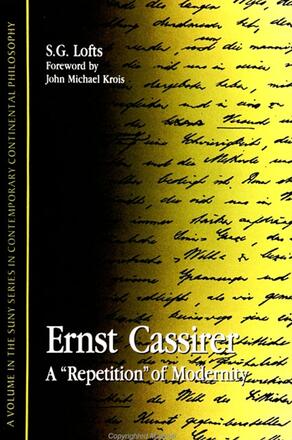
Ernst Cassirer
A "Repetition" of Modernity
Alternative formats available from:
Provides a reading of Cassirer's philosophy of symbolic forms in the context of contemporary continental philosophy.
Description
This systematic introduction to Ernst Cassirer's philosophy of symbolic forms demonstrates how his approach transforms the project of modernity in accord with the limitations of the modern conception of rationality. At the same time, this book functions as an introduction to Cassirer's thought.
S. G. Lofts is a Humboldt Fellow. He is the translator of Ernst Cassirer's The Logic of the Cultural Sciences: Five Studies and is also the author of other Cassirer titles in French.
Reviews
"This is the first work on Cassirer that I know of that relates his position to the most current views in French and German thought. It is really a new treatment of Cassirer. " — Donald Phillip Verene, coeditor of Ernst Cassirer's The Philosophy of Symbolic Forms, Volume 4: The Metaphysics of Symbolic Forms
"…an insightful study. The references to Cassirer's corpus and the specific quotes used as evidence are exceptionally well chosen. Moreover, the analysis of the structure of Cassirer's project both in terms of the manner in which it is normally interpreted and in terms of Lofts' explication is especially interesting. For a reader familiar with both Cassirer's original works and the body of literature it has engendered, this text offers some insights worthy of further examination. " — Dorothy A. Morosoff, Fordham University